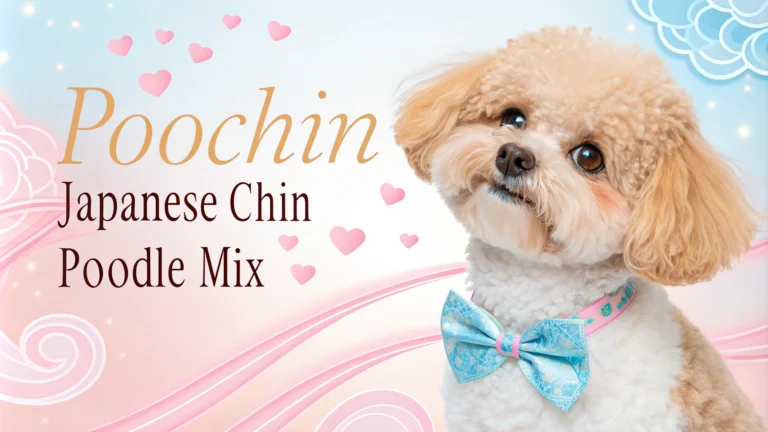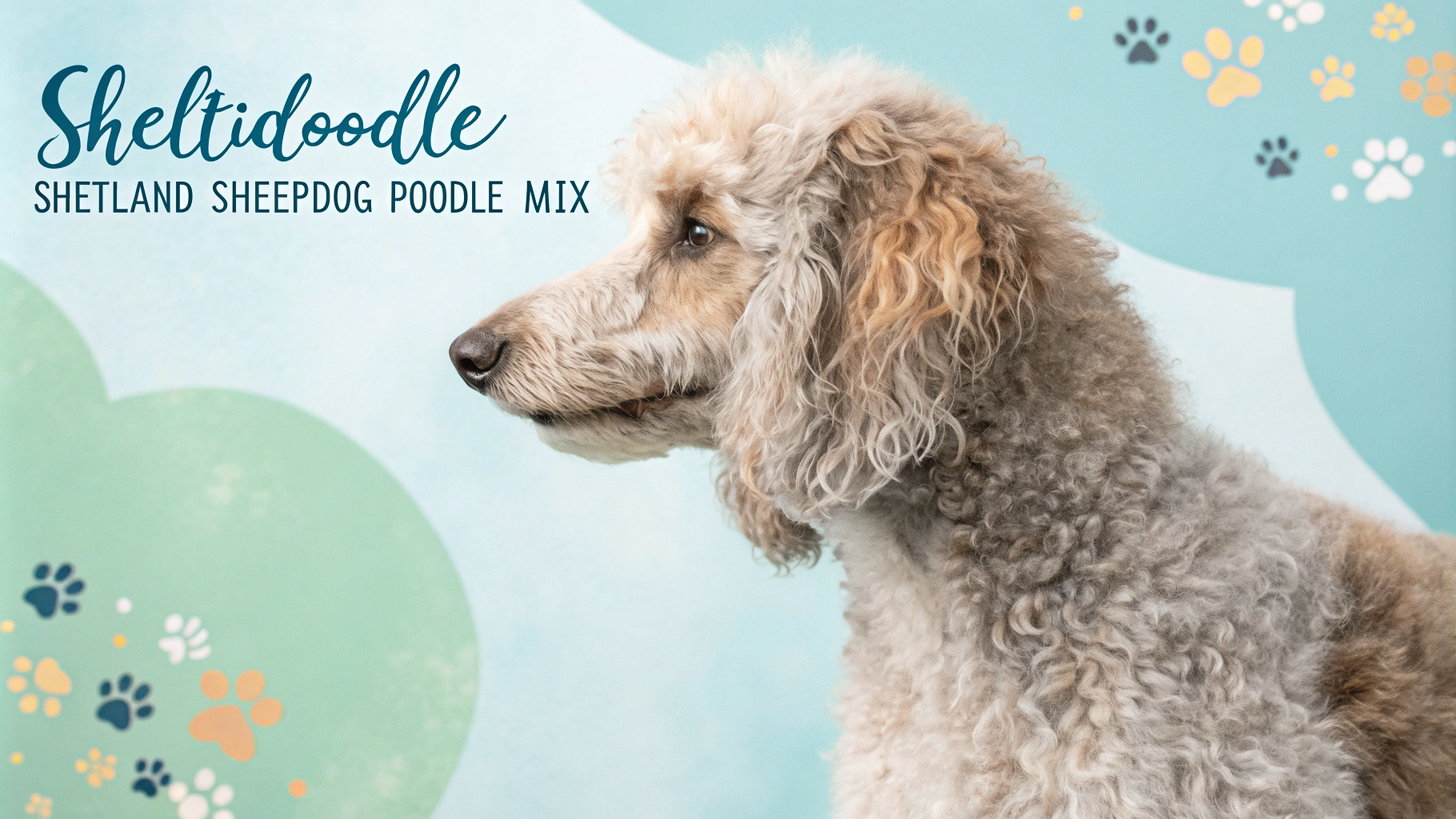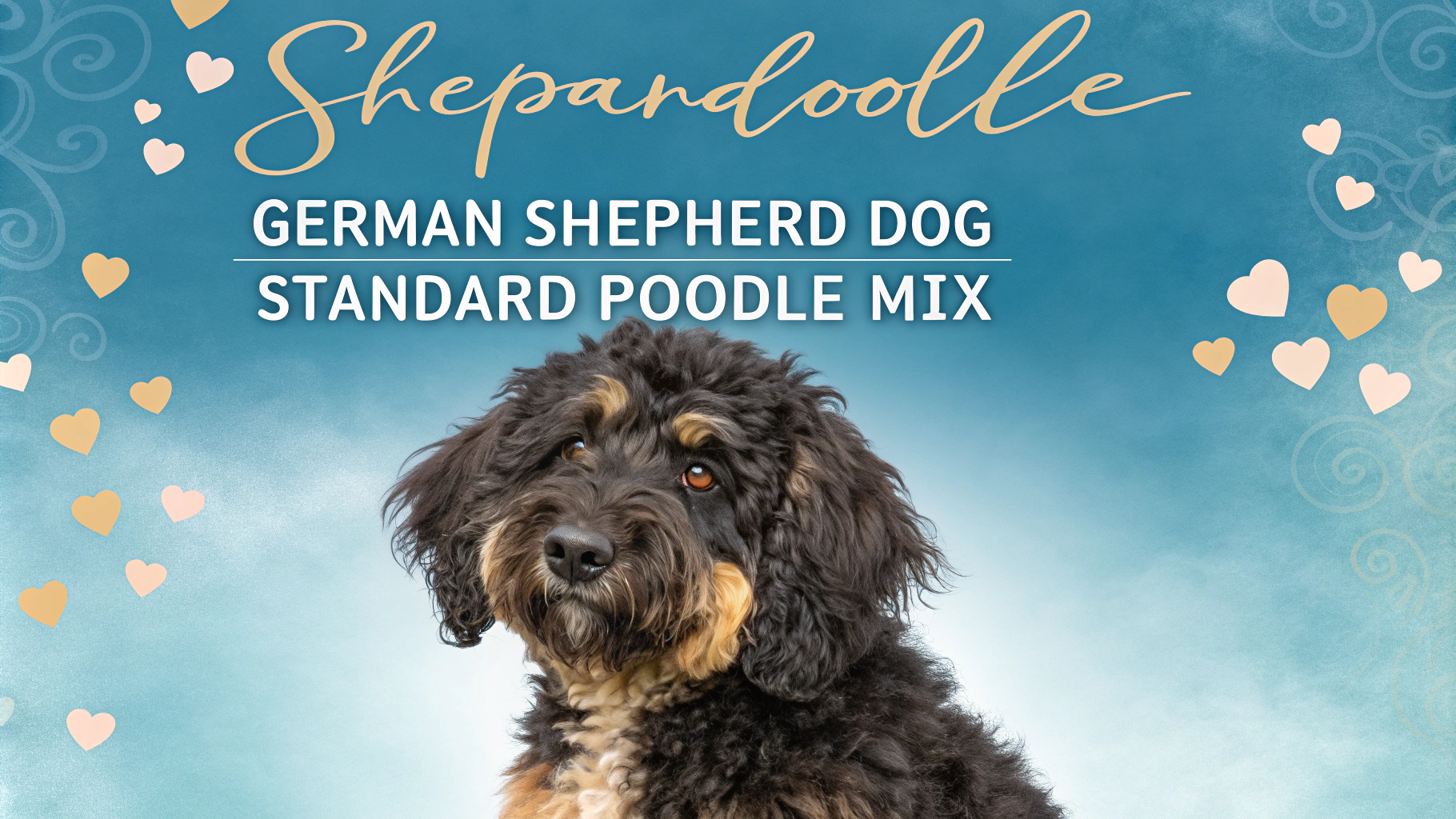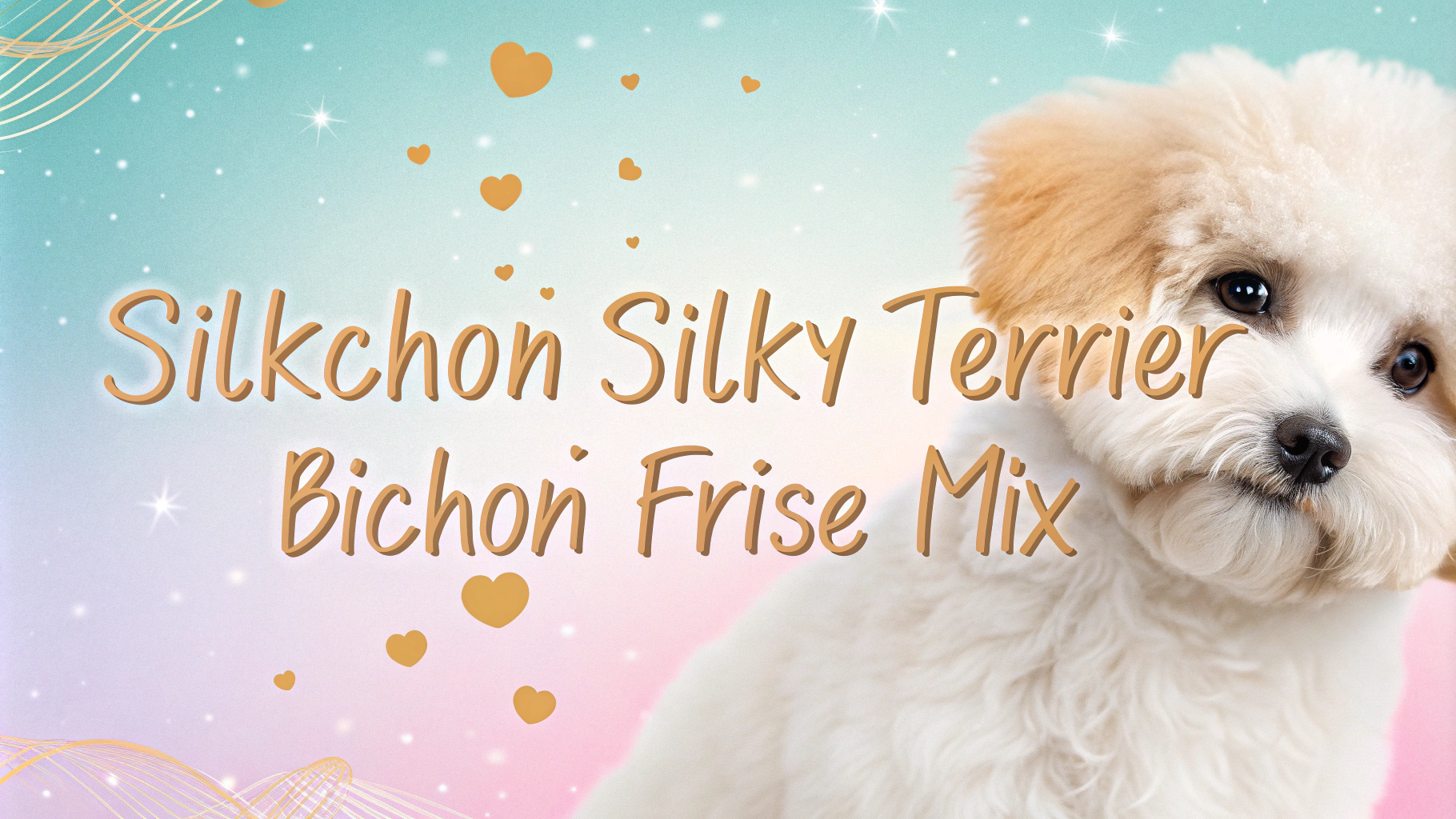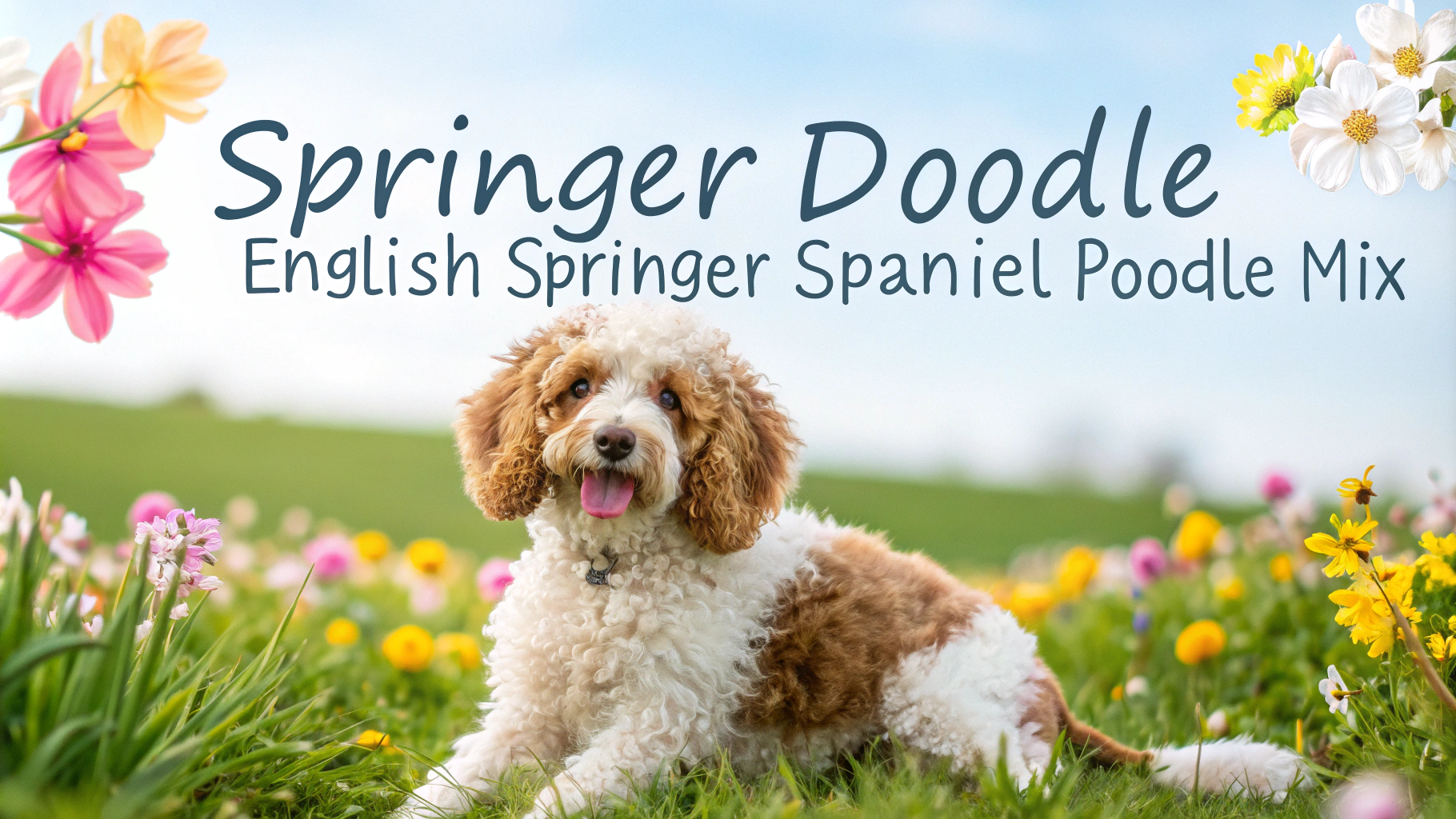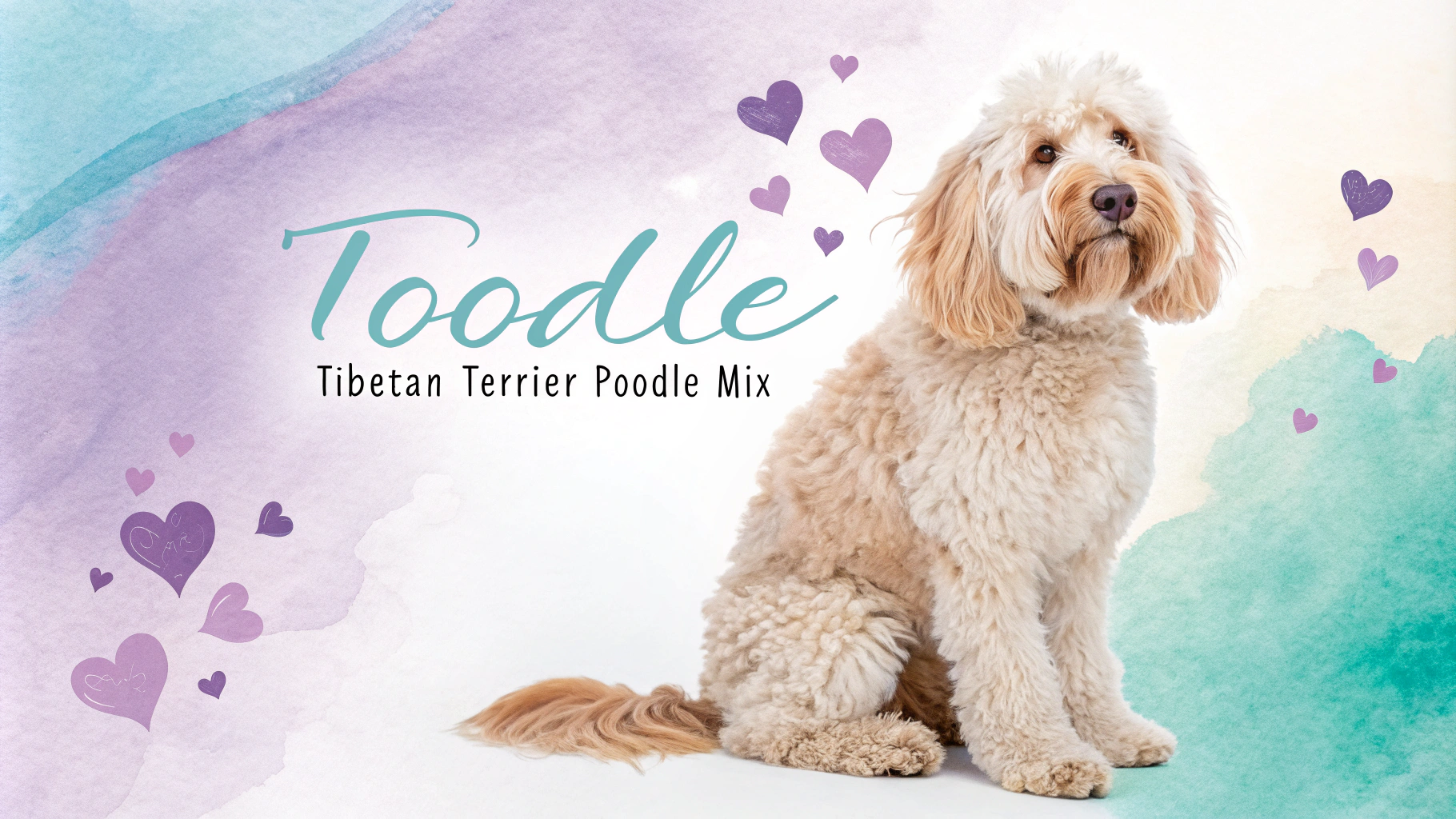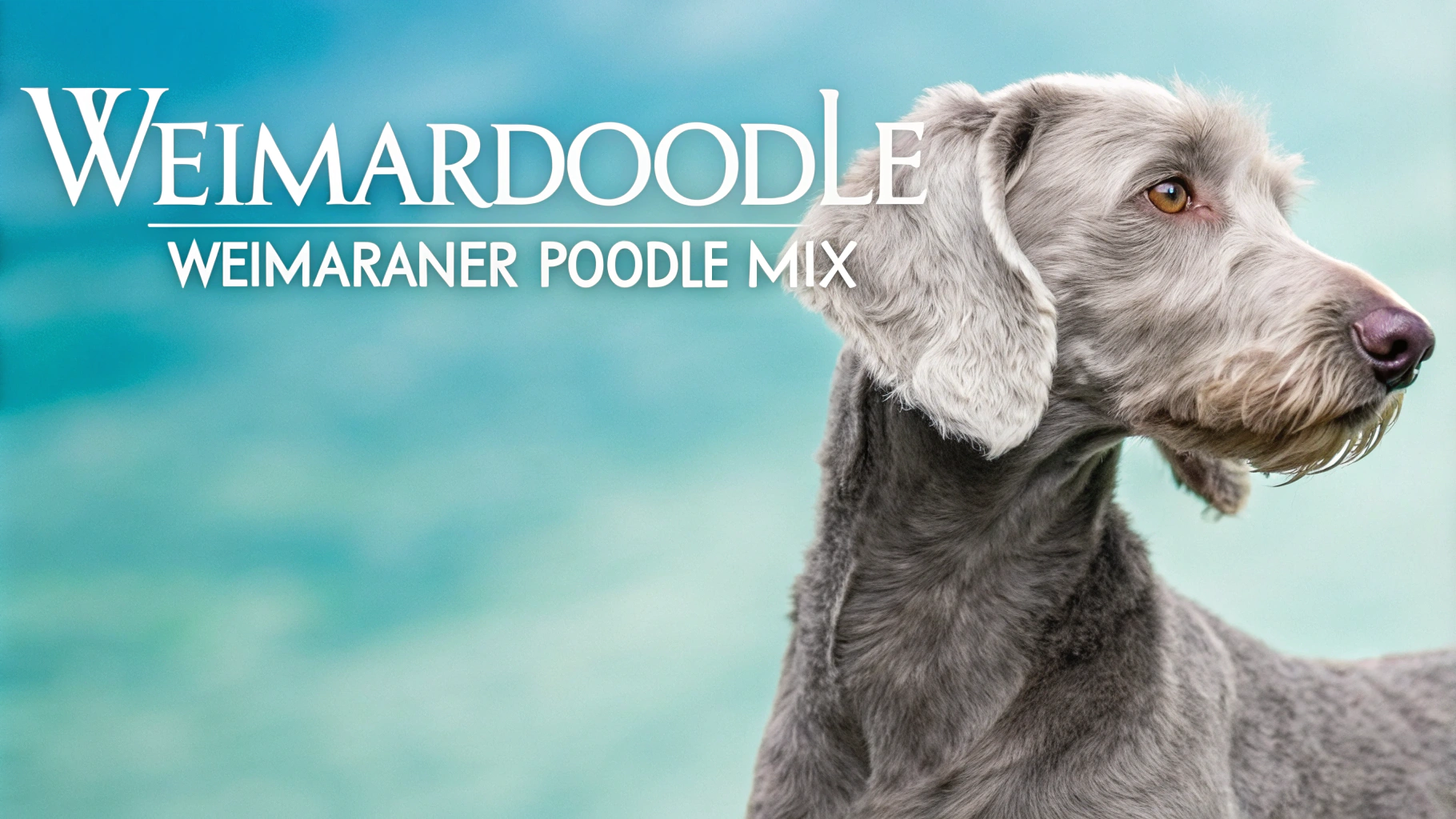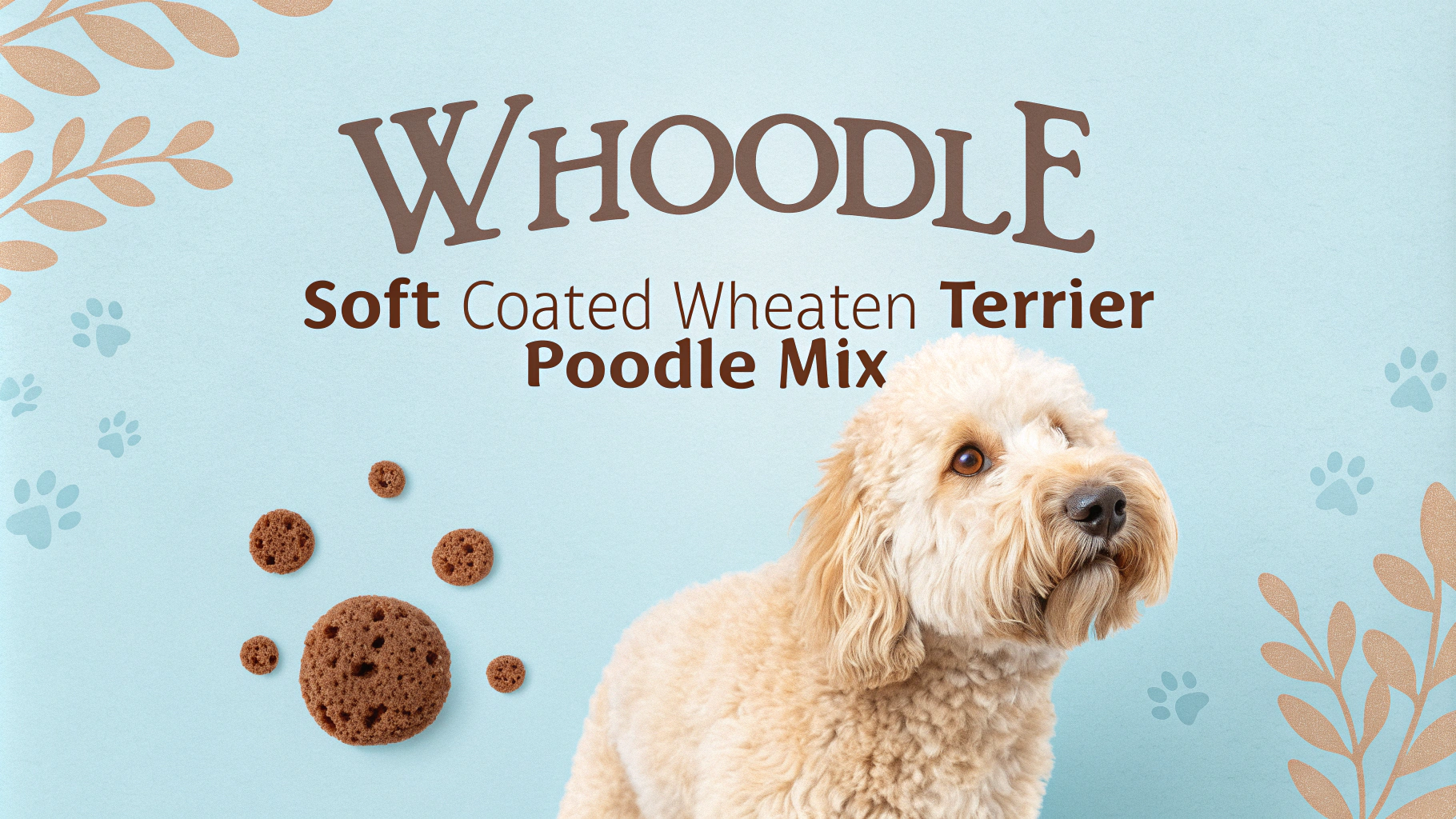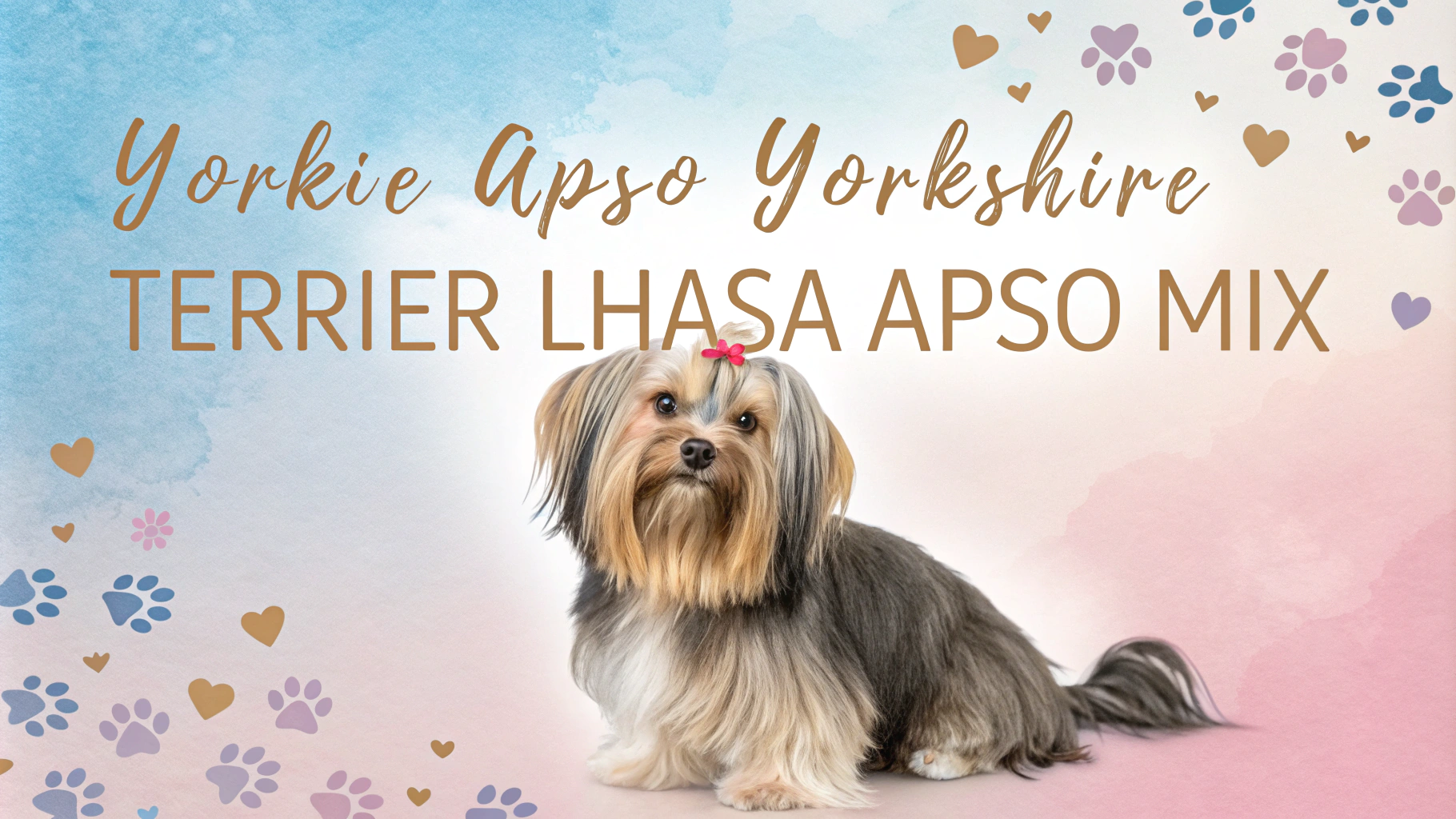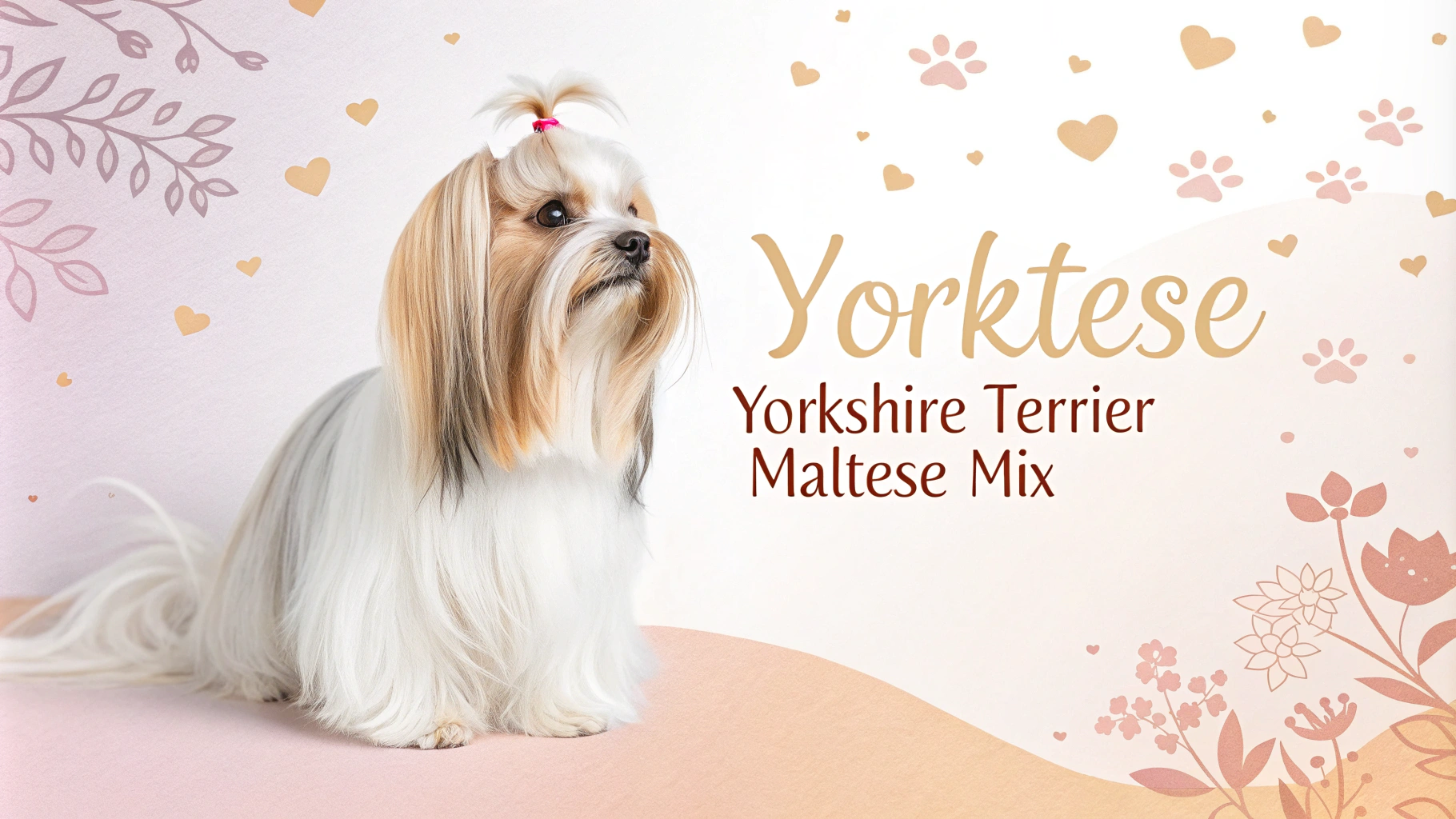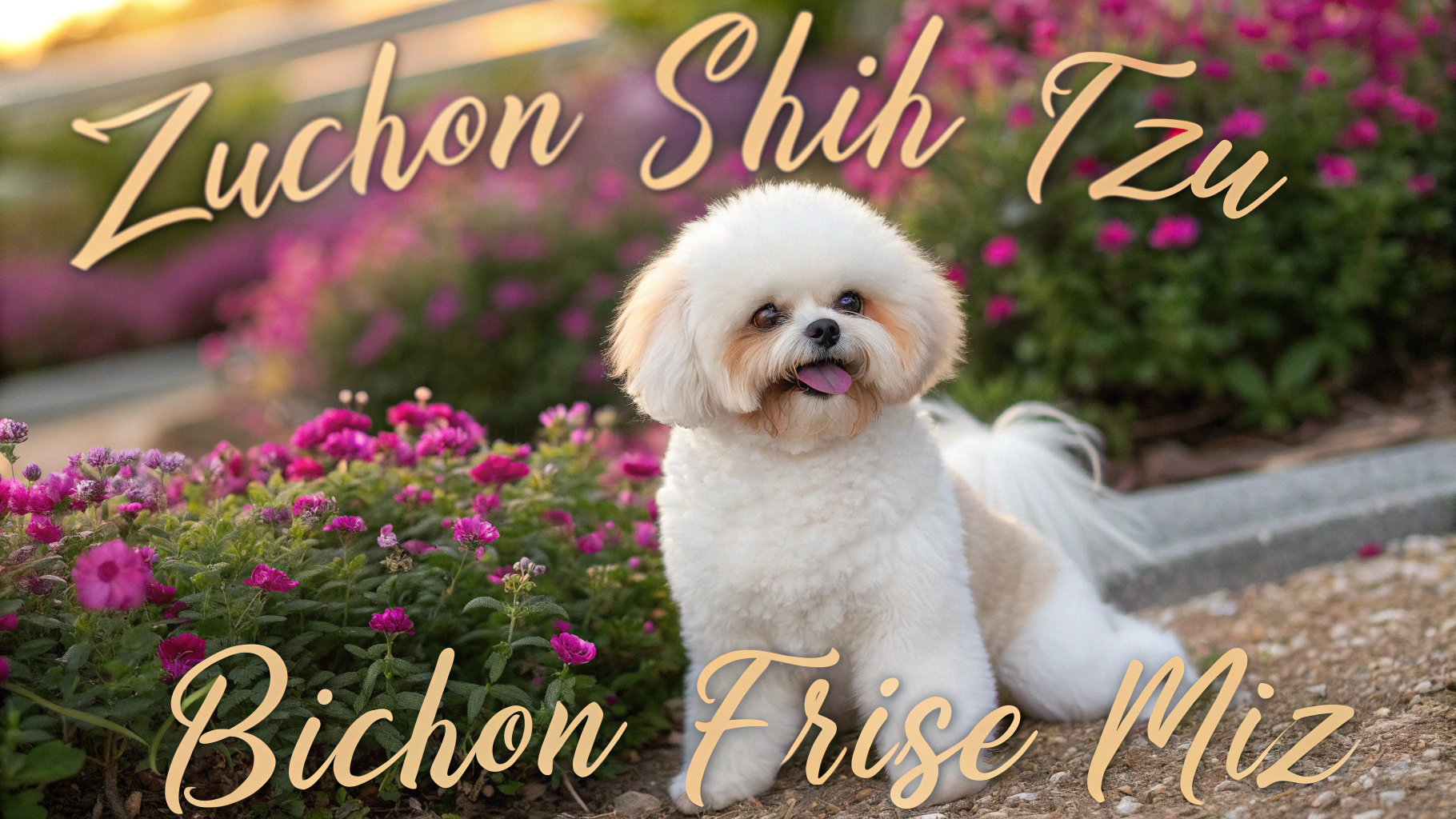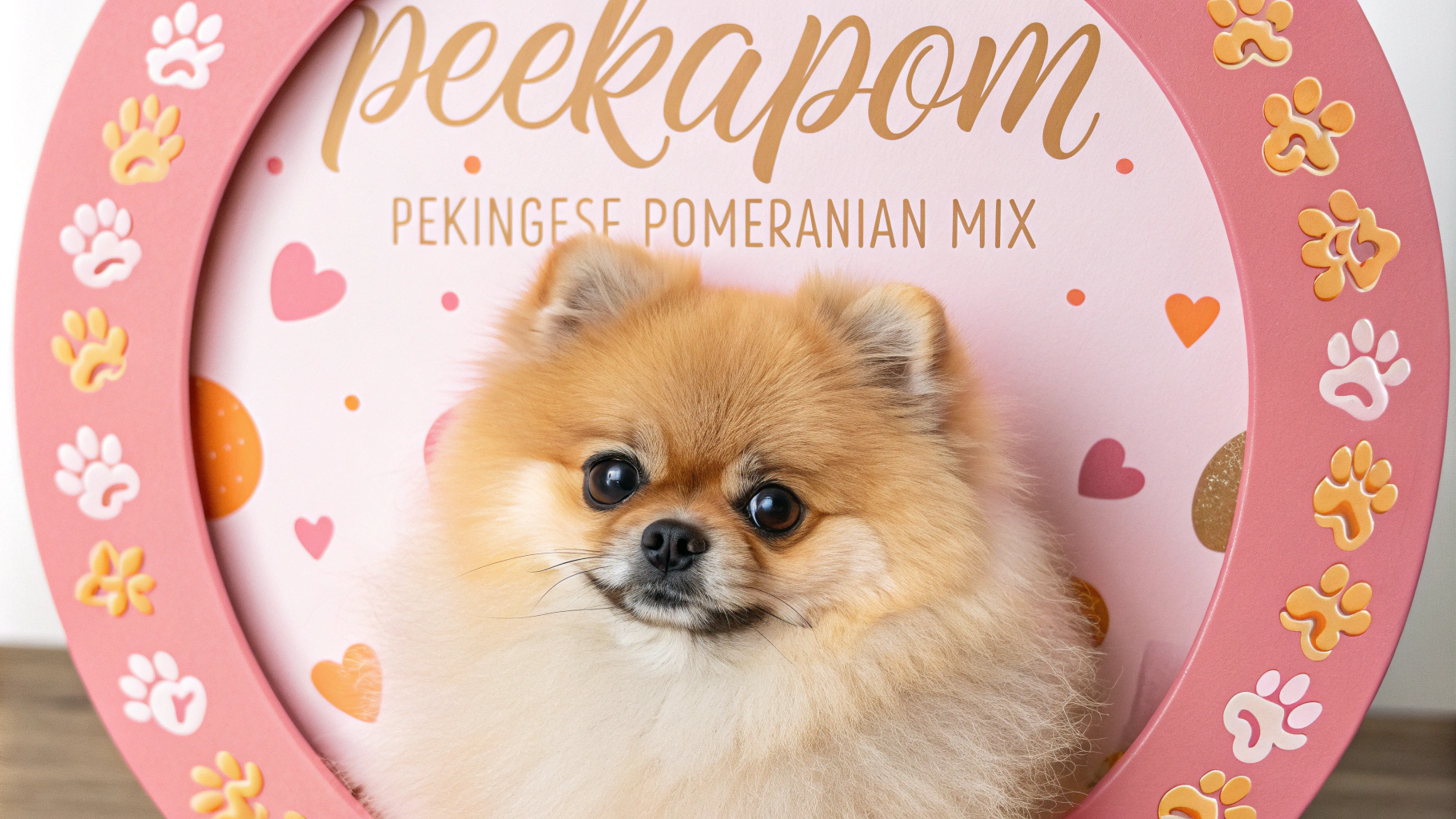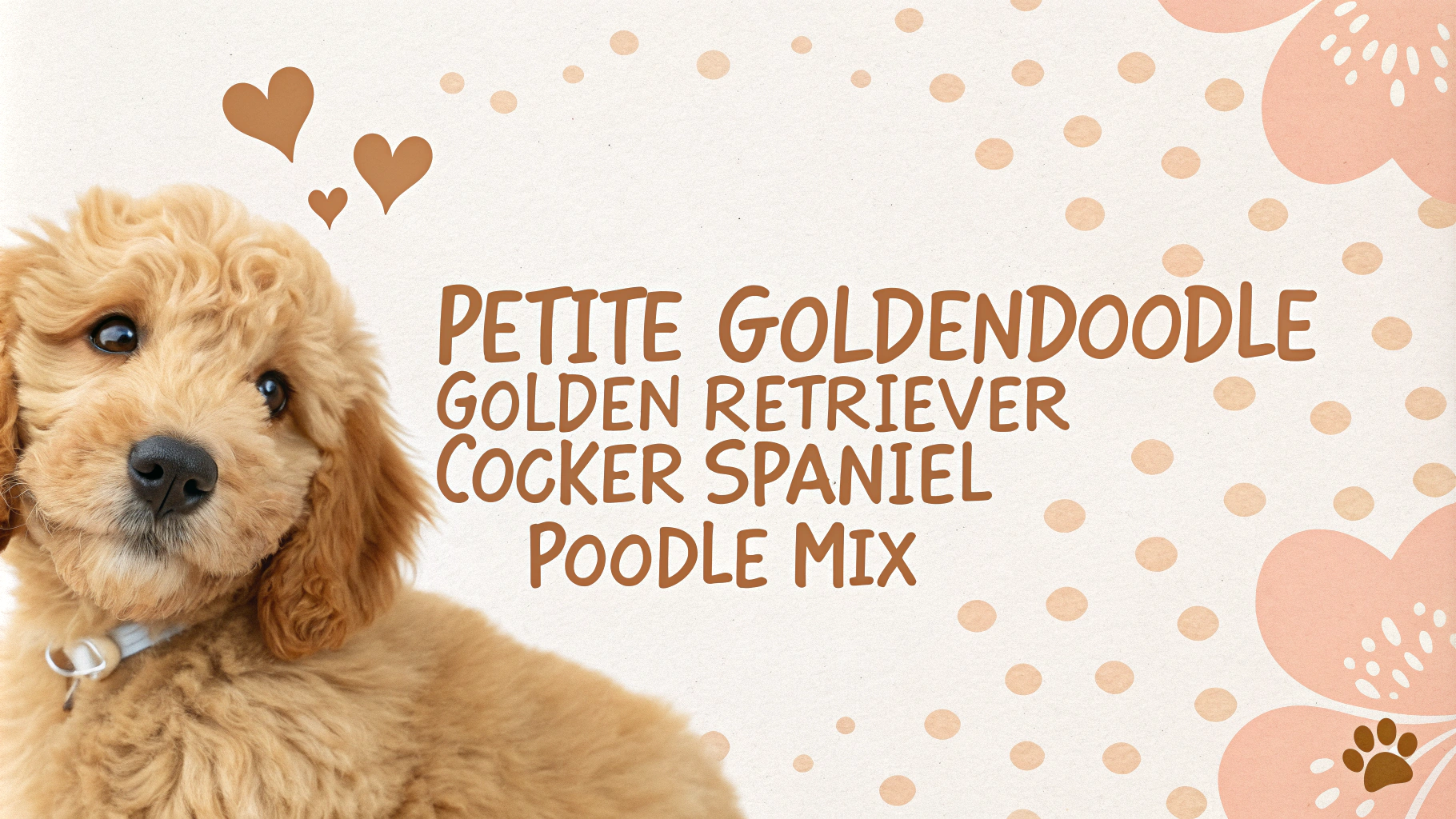The Poochin is a designer dog breed that combines the Japanese Chin and the Poodle. This mixed breed inherits characteristics from both parent breeds, resulting in a small, intelligent, and affectionate companion dog. Poochins are known for their playful nature, loyalty, and adaptability to various living situations. As with many designer breeds, the Poochin’s traits can vary depending on which parent breed is more dominant in the individual dog.
Key Facts
- Size: Small (typically 8-14 inches tall)
- Weight: 4-15 pounds
- Lifespan: 12-15 years
- Coat: Medium to long, can be wavy or straight
- Colors: Various, including white, black, brown, and combinations
- Temperament: Affectionate, intelligent, playful
- Good with children: Yes, when properly socialized
- Good with other pets: Generally yes, but early socialization is important
- Grooming needs: Moderate to high
- Exercise requirements: Low to moderate
Character Traits
Poochins inherit a blend of personality traits from their Japanese Chin and Poodle parents, resulting in a charming and versatile companion. These dogs are typically affectionate and devoted to their families, often forming strong bonds with their owners. They are known for their intelligence, which they inherit from both parent breeds, making them quick learners and responsive to training.
Poochins tend to be playful and energetic, enjoying interactive games and activities with their human companions. However, they can also be content as lap dogs, adapting well to their owner’s lifestyle. Their social nature usually makes them good with children and other pets when properly socialized from a young age.
Like their Japanese Chin ancestors, Poochins may display a regal and dignified demeanor at times. They can also inherit the Poodle’s alertness, potentially making them good watchdogs despite their small size. Poochins are generally adaptable and can thrive in various living situations, from apartments to houses with yards.
It’s important to note that individual Poochins may lean more towards one parent breed in terms of personality, so potential owners should be prepared for some variation in character traits. Overall, these dogs are known for being loving, intelligent, and entertaining companions that fit well into many different types of households.
History & Origins
The Poochin is a relatively new designer dog breed, likely originating within the last few decades as part of the trend of creating mixed breeds with desirable traits from both parent breeds. While the exact origins of the Poochin are not well-documented, understanding the history of its parent breeds can provide insight into the mix.
The Japanese Chin, one of the Poochin’s parent breeds, has a long and noble history. Despite its name, the breed is believed to have originated in China and was later brought to Japan as a gift to the imperial family. In Japan, these dogs were highly prized and treated as nobility, often living in palaces and being cared for by ladies-in-waiting. The Japanese Chin was bred to be a companion dog, known for its charming personality and distinctive appearance.
The Poodle, the other parent of the Poochin, has its roots in Germany and France. Originally bred as a water retriever for hunting, the Poodle later became popular as a circus performer and companion dog due to its high intelligence and trainability. Poodles come in three sizes (Standard, Miniature, and Toy), with the smaller varieties likely used in creating the Poochin mix.
The creation of the Poochin was likely motivated by the desire to combine the Japanese Chin’s affectionate and regal nature with the Poodle’s intelligence and hypoallergenic coat. As with many designer breeds, the goal was to produce a dog with the best traits of both parent breeds. While not recognized by major kennel clubs as a standardized breed, the Poochin has gained popularity among those seeking a small, intelligent, and affectionate companion dog.
Health Concerns
The Poochin, like many mixed breeds, can inherit health issues from both parent breeds. Common concerns may include:
- Eye problems: Such as cataracts, progressive retinal atrophy (PRA), and corneal ulcers
- Patellar luxation: A condition where the kneecap dislocates
- Hypothyroidism: An underactive thyroid gland
- Hip dysplasia: Especially in larger Poochins
- Heart issues: Including mitral valve disease
Regular veterinary check-ups, a balanced diet, and appropriate exercise can help maintain overall health. It’s essential to obtain a Poochin from a reputable breeder who conducts health screenings on parent dogs.
Exercise Needs
Poochins typically have moderate exercise needs, inheriting characteristics from both the active Poodle and the more leisurely Japanese Chin. Daily activities should include:
- 30-60 minutes of walking or playtime
- Indoor games and puzzle toys for mental stimulation
- Short fetch sessions or agility exercises
While they enjoy activity, Poochins are generally adaptable to their owner’s lifestyle. They can be content with indoor play sessions but also appreciate outdoor adventures. Regular exercise helps prevent obesity and behavioral issues stemming from boredom.
Space Requirements
Poochins are typically small to medium-sized dogs, making them suitable for various living situations. Their space requirements include:
- Apartment living: Generally well-suited, provided they receive adequate exercise
- Small houses: Ideal, with or without a yard
- Larger homes: Can thrive, but don’t require extensive space
While they can adapt to smaller living spaces, Poochins benefit from having a designated area for rest and play. They don’t require large yards but appreciate secure outdoor areas for exploration. Regular walks and outdoor activities are important regardless of living space.
Nutrition & Feeding
A balanced diet is crucial for maintaining the health of a Poochin. Key nutritional considerations include:
- High-quality dog food: Choose products appropriate for their size, age, and activity level
- Portion control: Monitor food intake to prevent obesity, a common issue in small breeds
- Meal frequency: typically 2-3 small meals per day for adults
- Fresh water: Always available
Consult with a veterinarian to determine the best diet plan for your individual Poochin, as nutritional needs may vary based on factors such as age, weight, and health conditions. Avoid overfeeding and limit treats to maintain a healthy weight. Some Poochins may have food sensitivities, so observe for any adverse reactions when introducing new foods.
Grooming Tips
The Poochin, a mix between a Japanese Chin and a Poodle, typically has a coat that combines characteristics of both parent breeds. This coat usually requires regular grooming to maintain its health and appearance. Here are some key grooming tips for Poochins:
- Brushing: Brush your Poochin’s coat 2-3 times a week, or daily if the coat is longer or more Poodle-like. Use a slicker brush or pin brush to remove tangles and prevent matting.
- Bathing: Bathe your Poochin every 4-6 weeks, or as needed. Use a gentle dog shampoo to avoid skin irritation.
- Trimming: Regular trimming, especially around the face, paws, and sanitary areas, helps maintain a neat appearance and prevents matting.
- Ear care: Check and clean the ears weekly to prevent infections, especially if your Poochin has floppy ears like a Poodle.
- Dental hygiene: Brush your dog’s teeth 2-3 times a week to maintain good oral health and prevent dental issues.
Remember that grooming needs may vary depending on which parent breed the Poochin takes after more. Some Poochins may have a more Poodle-like coat that requires professional grooming every 6-8 weeks, while others may have a coat more similar to a Japanese Chin that’s easier to maintain at home.
Training Approach
Training a Poochin requires patience, consistency, and positive reinforcement techniques. These intelligent and sometimes stubborn dogs respond best to gentle, reward-based training methods. Here are some key points to consider when training your Poochin:
- Start early: Begin socialization and basic obedience training as early as possible to ensure a well-behaved adult dog.
- Use positive reinforcement: Reward good behavior with treats, praise, and play. This encourages your Poochin to repeat desired behaviors.
- Keep sessions short: Poochins can have a short attention span, so aim for multiple short training sessions throughout the day rather than long ones.
- Be consistent: Establish clear rules and boundaries, and ensure all family members enforce them consistently.
- Address stubbornness: If your Poochin inherits the Japanese Chin’s stubborn streak, remain patient and firm, never resorting to harsh methods.
Focus on teaching basic commands like sit, stay, come, and leave it. Incorporate mental stimulation exercises to keep your Poochin engaged and prevent boredom-related behavioral issues. Remember that every dog is unique, so be prepared to adapt your training approach based on your individual Poochin’s personality and learning style.
